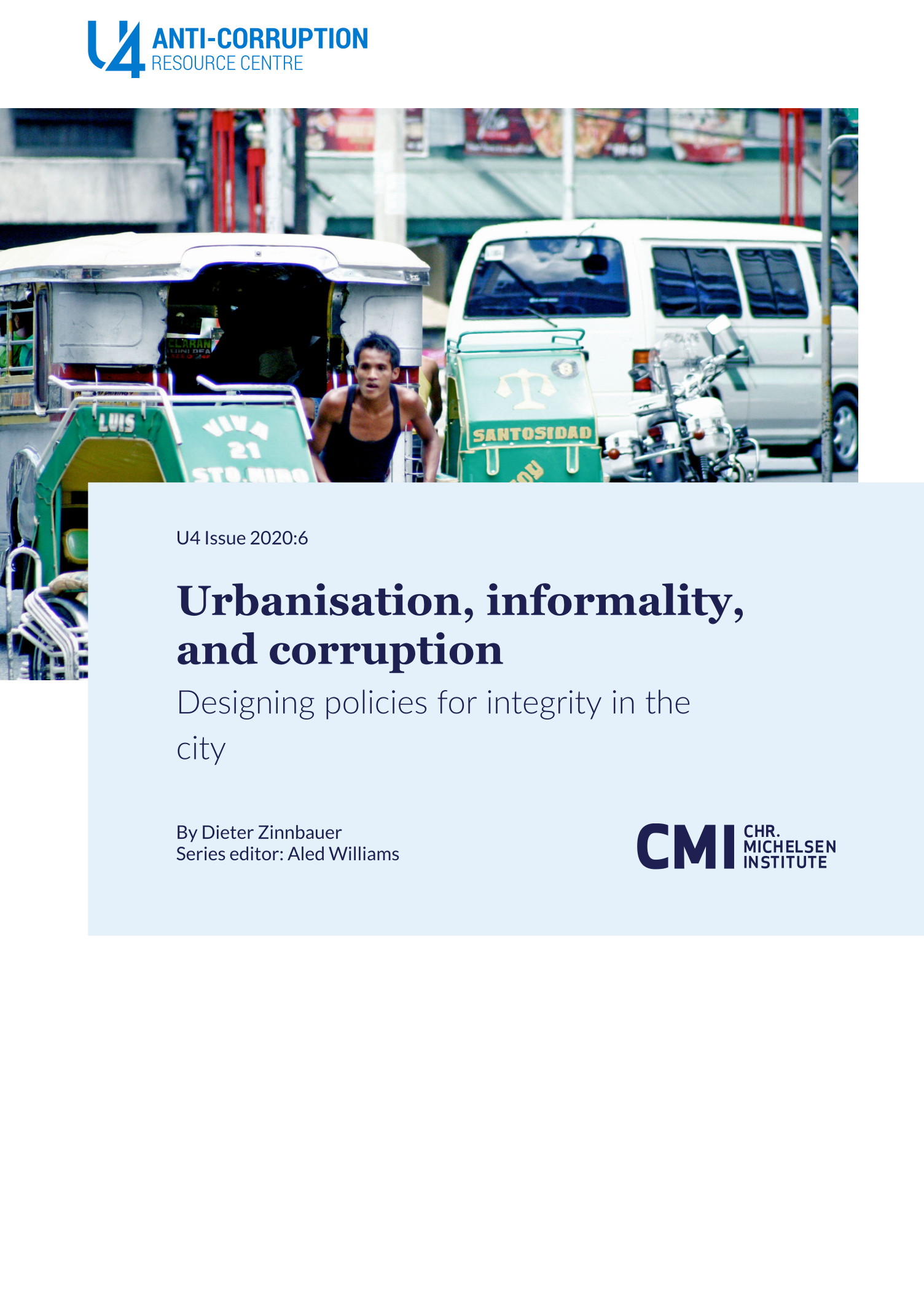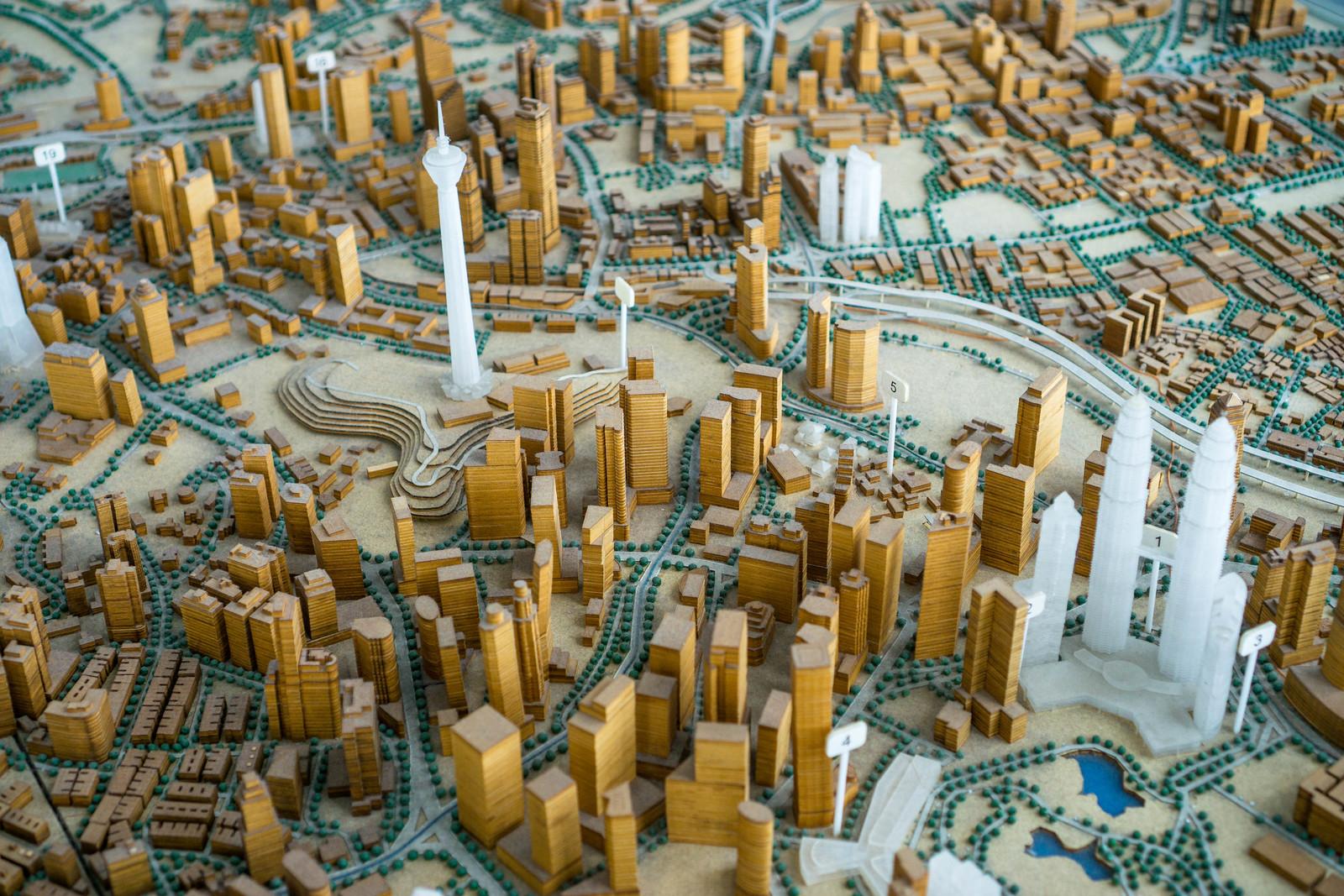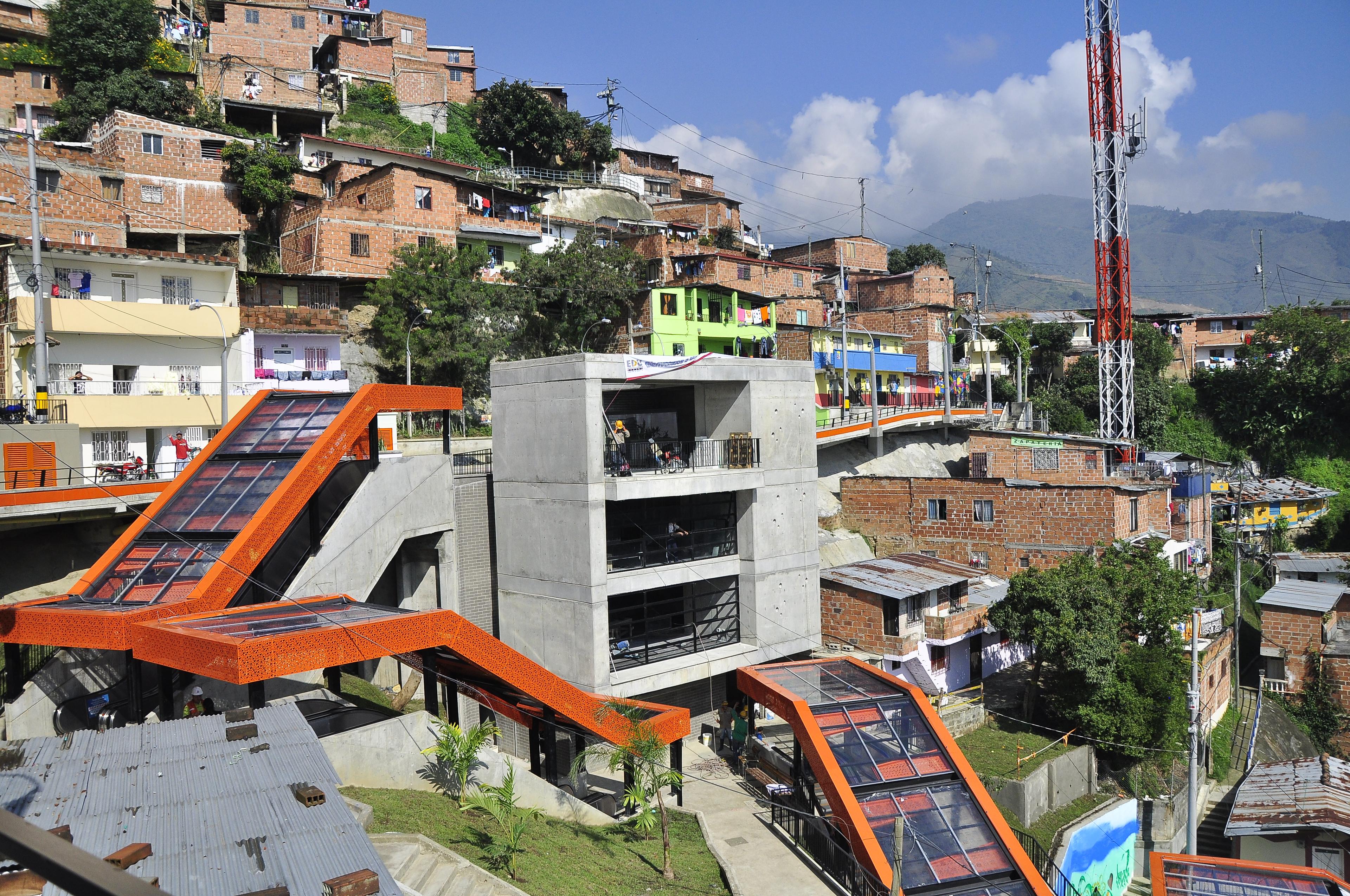Main points
- The world is urbanising rapidly, and informal economies dominate many cities. Exposure to corruption is significant for urban dwellers living and working informally, especially in the areas of livelihoods and housing.
- Corrupt practices in urban settings include, among others, co-optation of collective organisations of informal workers, dishonest schemes that embed opportunities for rent seeking into urban infrastructure and services, and forbearance as a mechanism to convert informality into private political or economic gain.
- The popular remedy of formalisation to improve urban governance comes with substantive qualifications and caveats.
- Smart-city technologies offer mixed anti-corruption prospects. New platform economies such as ride sharing could reduce exposure to corruption in certain circumstances, but blockchain solutions for land markets are unlikely to make a mark. Remote sensing through drones and satellites could be helpful when deployed by the right users.
- An updated understanding of corruption and urban informality suggests ways to rethink interventions. Rather than grand change projects that aim to shift a city’s corruption equilibrium, practitioners can pursue selective tactical interventions to enhance transparency and support agency and voice among the marginalised. These may combine to trigger major advances in urban integrity.


